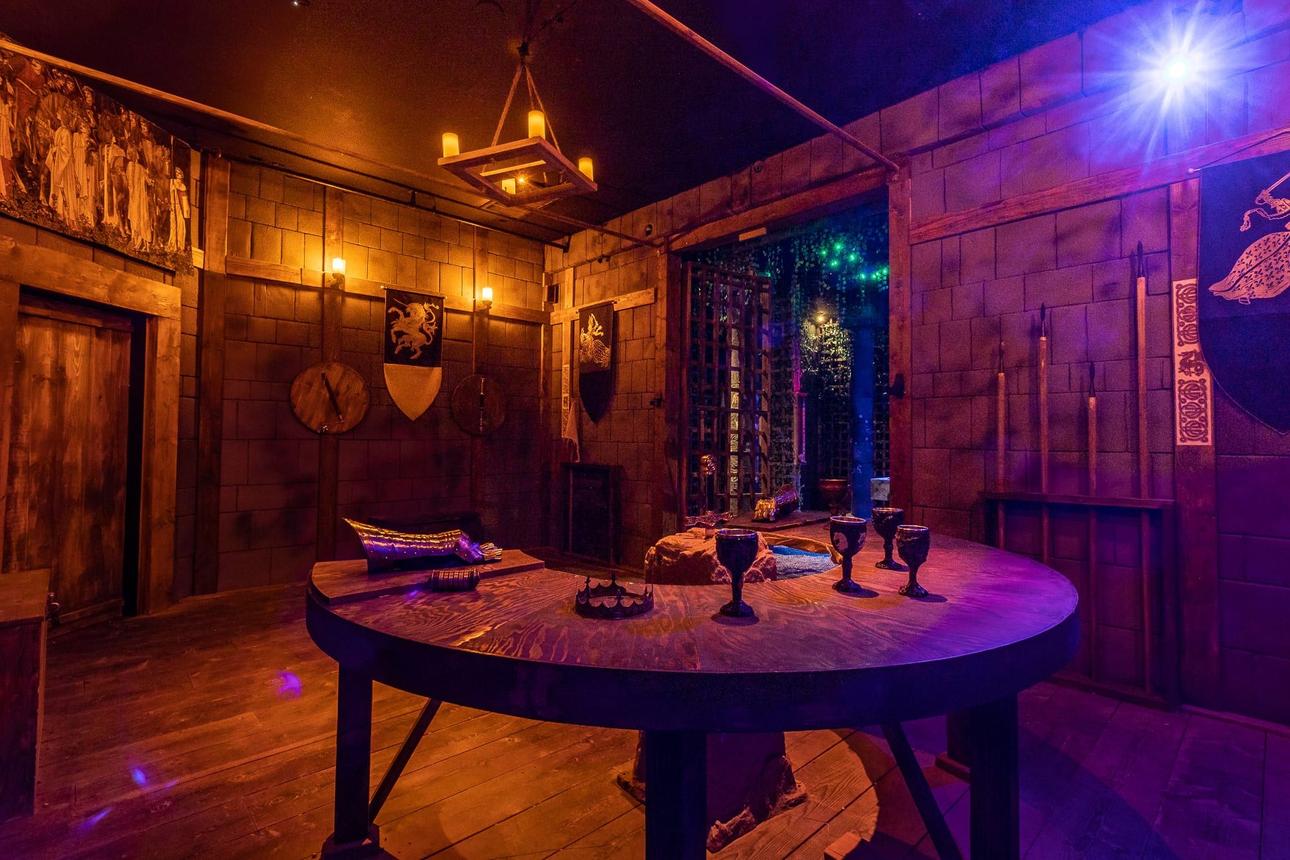Team Techniques: Just How to Collaborate Effectively in a Getaway Space
Browsing the complexities of a getaway space demands greater than simple excitement; it needs a well-coordinated strategy based in clear interaction, critical function assignments, and skilled time monitoring. Teams need to actively listen per member's understandings, designate functions that straighten with private toughness, and preserve regular check-ins to ensure focus and protect against redundancy. By fostering a setting that values cohesion and versatility, teams can dramatically enhance their performance and success prices. The subtleties of these techniques can change the experience, however exactly how specifically can they be implemented to make best use of the potential for success?
Establish Clear Communication

To assist in clear communication, it is crucial to assign a central point of contact for information circulation. This role entails summarizing searchings for and proposed strategies to ensure every person stays on the very same web page. In addition, taking on a systematic method to discussions can stop disorderly exchanges. For circumstances, short, concentrated updates from each staff member can maintain the team informed without frustrating them with details.

Appoint Duties Tactically
While clear interaction establishes the structure for efficient team effort, assigning functions strategically guarantees that each team member's strengths are utilized effectively. In a getaway space situation, the time-sensitive and complicated nature of challenges requires a well-organized strategy to job delegation. By determining and leveraging specific expertises, teams can enhance their analytic abilities and improve total efficiency.
Someone with an eager eye for information could excel in locating covert items, while a logical thinker can be better suited to solving puzzles. This duty commonly needs solid business and interpersonal abilities.
Second, guarantee that roles are versatile and versatile. As brand-new challenges emerge, the team has to have the ability to pivot, reapportioning tasks as called for. This flexibility assists preserve momentum and avoids bottlenecks that could take place due to inflexible role jobs.
Ultimately, a critical technique to duty task not just makes the most of the strengths of each group member but also cultivates a cohesive setting, driving the group towards an effective site escape.
Utilize Diverse Skills
Acknowledging and utilizing the diverse abilities within your team can significantly raise your efficiency in a getaway room. Each employee brings one-of-a-kind strengths to the table, and properly leveraging these capabilities can expedite analytic and enhance overall efficiency. A team member with strong analytical abilities might succeed at understanding intricate codes or patterns, while an additional with eager observational capabilities might rapidly spot hidden ideas that others might neglect.
Encourage group participants to articulate their understandings and ideas without delay, making sure that all possible options are taken into consideration. In addition, assigning jobs that align with each participant's staminas can prevent bottlenecks and make certain that progress is constant.
Additionally, diversity in abilities usually translates to diversity in believing styles, which is vital in an escape area setting. While some difficulties might need sensible reasoning and accuracy, others could gain from imaginative and lateral thinking. By identifying and leveraging this variety, teams can attend to a more comprehensive variety of difficulties better, thereby enhancing their opportunities of an effective getaway.
Manage Time Successfully

First, allot preliminary minutes for a quick study of the space. Determine visible challenges and divide tasks based on staff member' strengths, making certain that no one is idle. Set inner time checkpoints to review development occasionally; as an example, goal to have half the puzzles resolved by the mid-point of the video game. This technique can aid keep the group focused and avoid time from escaping undetected.
In addition, prevent one-track mind. If a challenge is taking as well long, rotate staff member or move on to another challenge, returning later on with fresh point of views. Interaction is vital-- maintain every person upgraded on top article fixed puzzles and staying tasks to prevent redundant initiatives.
Finally, make use of any type of hints or clues sparingly yet purposefully - best escape room. Knowing when to ask for aid can save beneficial time. By sticking to these time management principles, groups can dramatically enhance their chances of an effective and satisfying getaway space experience
Debrief and Reflect
Representation is a necessary facet of group advancement and improvement in the context of retreat rooms. When the obstacle is finished, whether effectively or not, it is critical for the group to take part in an organized debriefing session. This process permits team participants to evaluate their performance, identify strengths, and identify locations for read this enhancement.
Begin the debrief by discussing what went well. Highlight particular instances of reliable interaction, problem-solving, and collaboration. Recognizing these positive behaviors enhances them and motivates their repeating in future challenges.
Following, attend to the challenges encountered. Go over minutes of complication, miscommunication, or inefficient methods. Urge an open and useful dialogue where employee can share their perspectives without concern of criticism. This fosters a society of continual enhancement and discovering.
Verdict
To conclude, successful cooperation in an escape space is asserted upon clear interaction, tactical role tasks, the efficient use of varied abilities, and efficient time administration. Routine check-ins and organized debriefings are essential for keeping focus and promoting continuous improvement. By producing a cohesive and flexible team atmosphere, the likelihood of efficiently resolving puzzles and achieving the objective of leaving the area is considerably boosted. This technique not just guarantees success yet additionally advertises collective development and discovering.